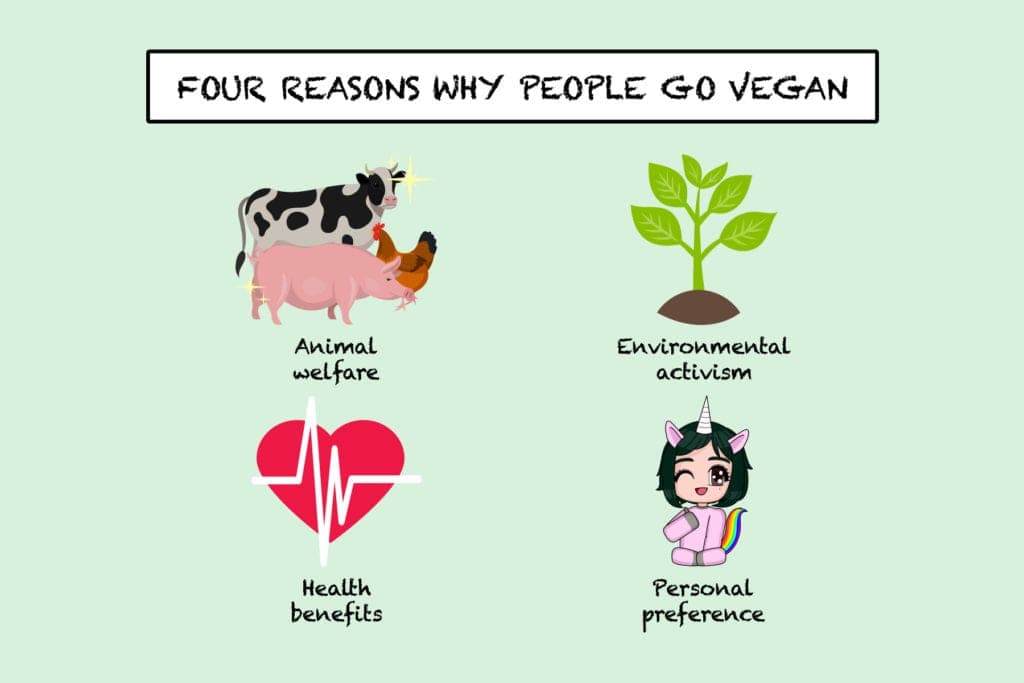- Published on
Why Going Vegan is More Important Now Than Ever Before
- Authors

- Name
- Admin

In today's rapidly changing world, the choices we make about what we consume have far-reaching implications. Veganism, once considered a niche lifestyle, is now becoming a mainstream movement. This shift is driven by growing awareness of the health benefits, environmental impact, and ethical considerations associated with our food choices. Here’s why going vegan is more important now than ever before.
Health Benefits
Improved Heart Health
One of the most compelling reasons to go vegan is the significant health benefits it offers. Research has shown that a plant-based diet can improve heart health. Vegan diets are typically low in saturated fats and cholesterol, which are major contributors to heart disease. Instead, they are high in fiber, antioxidants, and essential nutrients that promote cardiovascular health.
Weight Management
For those struggling with weight management, a vegan diet can be a game-changer. Plant-based foods are generally lower in calories and higher in nutrients, helping you maintain a healthy weight. Studies have found that vegans tend to have lower body mass indexes (BMIs) compared to non-vegans.
Reduced Risk of Chronic Diseases
A vegan diet can also reduce the risk of chronic diseases such as diabetes, cancer, and hypertension. Whole grains, fruits, and vegetables are rich in antioxidants and phytochemicals that protect against these diseases. Additionally, plant-based diets can improve insulin sensitivity and lower blood sugar levels, making it a beneficial choice for diabetics.
Environmental Impact
Lower Carbon Footprint
The environmental benefits of veganism are undeniable. The livestock industry is a major contributor to greenhouse gas emissions, responsible for nearly 15% of global emissions. By going vegan, you can significantly reduce your carbon footprint. A study by the University of Oxford found that cutting meat and dairy products from your diet can reduce your carbon footprint from food by up to 73%.
Conservation of Water Resources
Water scarcity is a growing global issue, and animal agriculture is a major consumer of water. Producing one pound of beef requires approximately 1,800 gallons of water, while producing the same amount of plant-based food requires far less. By choosing a vegan diet, you can contribute to the conservation of precious water resources.
Preservation of Ecosystems
Animal farming not only consumes vast amounts of water and land but also leads to deforestation and habitat destruction. The Amazon rainforest, often referred to as the "lungs of the Earth," is being cleared at an alarming rate to make way for cattle ranching. By going vegan, you help reduce the demand for land-intensive animal farming, thereby preserving ecosystems and biodiversity.
Ethical Considerations
Animal Welfare
Ethical concerns about animal welfare are a significant motivator for many people to adopt a vegan lifestyle. The industrial farming system subjects animals to inhumane conditions, including overcrowding, confinement, and cruel treatment. By choosing a vegan diet, you can take a stand against animal cruelty and promote more humane treatment of animals.
Reducing Animal Suffering
Factory farming practices are not only cruel but also unnecessary, given the availability of plant-based alternatives. By going vegan, you can reduce the demand for animal products, thereby decreasing the number of animals subjected to suffering and slaughter.
Current Global Issues
Pandemic Prevention
The COVID-19 pandemic has highlighted the risks associated with animal agriculture. Many infectious diseases, including COVID-19, are zoonotic, meaning they originate in animals and can be transmitted to humans. Wet markets and factory farms are breeding grounds for such diseases. By reducing our reliance on animal products, we can mitigate the risk of future pandemics.
Climate Change
Climate change is one of the most pressing issues of our time, and animal agriculture is a significant driver. Methane emissions from livestock are particularly harmful, as methane is a potent greenhouse gas. By adopting a vegan diet, you can play a role in combating climate change and promoting a more sustainable future.
Social Justice
Food Security
Veganism also intersects with social justice issues, including food security. Producing plant-based foods is more efficient and requires fewer resources than animal agriculture. By promoting a vegan diet, we can help address global hunger and ensure more equitable distribution of food resources.
Labor Rights
The labor conditions in the meatpacking industry are notoriously poor, with workers often subjected to dangerous and exploitative conditions. By reducing the demand for animal products, we can alleviate the pressure on these workers and advocate for better labor rights and conditions.
Conclusion
The reasons to go vegan are more compelling now than ever before. From improving your health to protecting the environment and promoting ethical treatment of animals, the benefits are far-reaching. Given the current global challenges we face, adopting a vegan lifestyle is not just a personal choice but a powerful act of advocacy for a better world. So, why not make the switch today?
By choosing a vegan lifestyle, you are making a positive impact on your health, the planet, and the lives of countless animals. It's a choice that aligns with the values of compassion, sustainability, and social justice. Make the change today and be part of the solution.